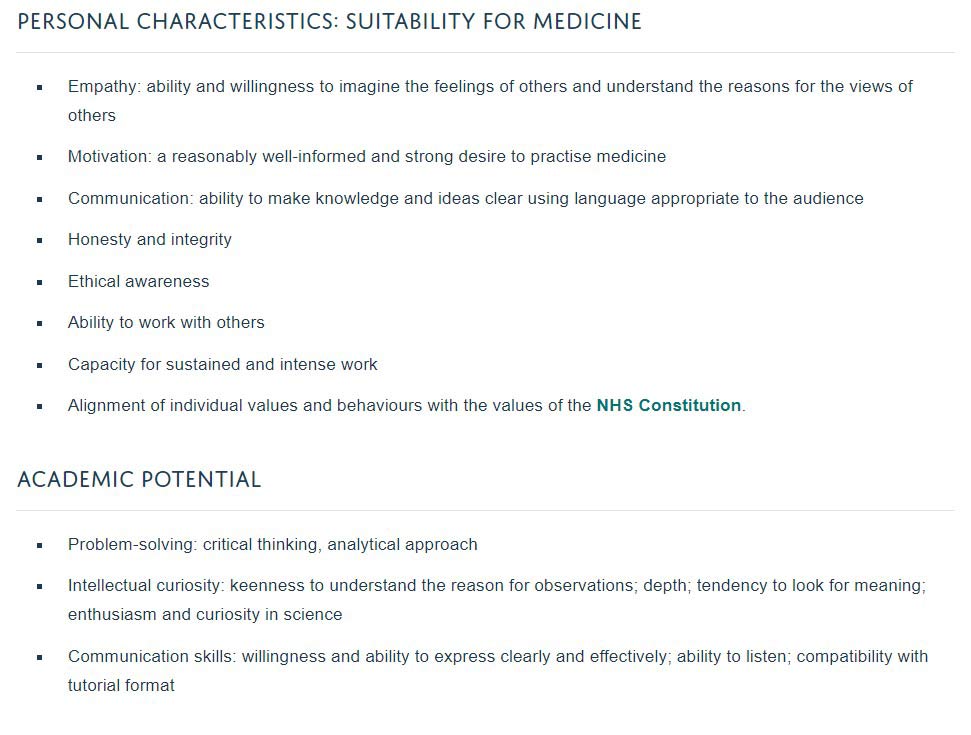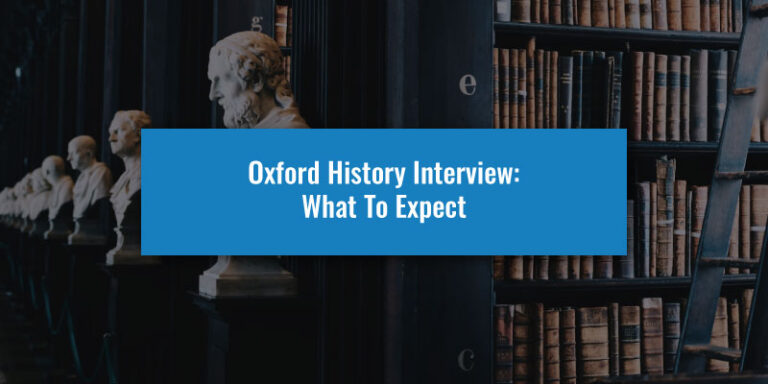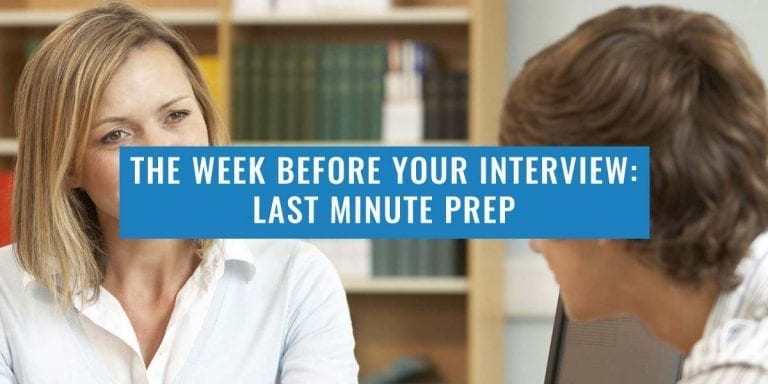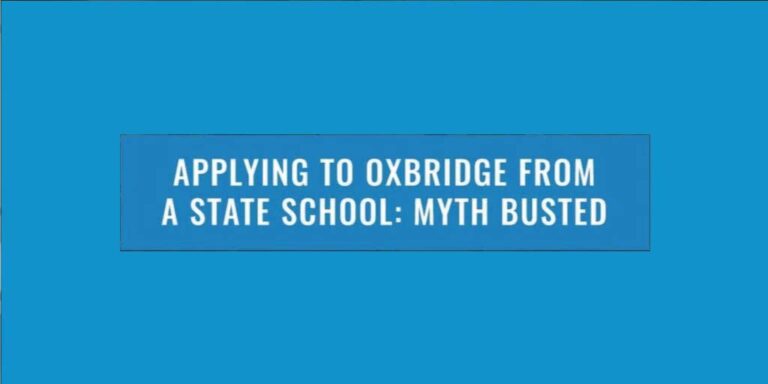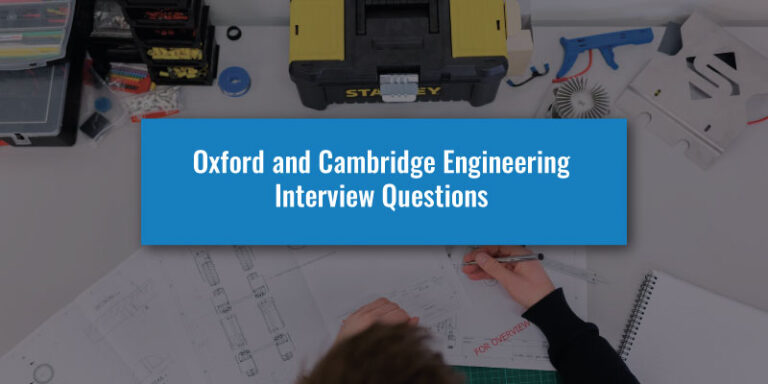Each year we are bombarded by students asking “how do I prepare for my Oxford Interview?”
Preparing for an Oxford Interview can sometimes feel overwhelming and confusing, so we’ve put together a guide on how to prepare for the big day. We go through how to use practice questions, what interviewers are looking for and how to read around your subject. Let’s get started.
Practice Oxford Interview Questions
The best way to prepare for Oxford Interviews is through practising questions and doing mock Interviews. Practice with people who will be brutally honest with you – people who will say “you are sitting too rigidly” or “take your time”. This will make a huge difference on the day of your Interview and you’ll feel more prepared when the interviewer starts asking you questions.
Here are some tips to help you effectively practice Interview questions:
Go Through The Common Oxford Interview Questions
It is highly likely that the tutor will ask you traditional Oxford Interview questions such as why this subject? Why Oxbridge? What is your favourite area of study in this subject? These questions are good ones to prepare answers for. You may also get asked more specific questions about the teaching system or about your career aspirations. This will also be the time for discussing any extenuating circumstances for poor exam results and similar considerations.
To do well with common Interview questions, your answers should show that you understand the Oxford system and that you have strong reasons for applying there. These reasons could be:
- Motivation for the subject - this can be demonstrated through wider reading and work experience.
- Understanding that the course at Oxford will fit your interests - especially given the academic rigour and particular modules which make up the course.
- The hope to have the opportunity to learn in the tutorial system - this will enable a discussion of ideas and to be critiqued/taught by top academics.
Practice Your Questions Out Loud
The most important thing to do when communicating your answers is to think out loud. When practising questions, always do this out loud and preferably with your teacher or friends and family for feedback and to explain your answers properly. It’s not as beneficial to explain your answers to yourself as you already know/should know what you are talking about. Explaining what you know to others is much harder, so spending time on this now will make you feel more confident during the Oxford Interviews.
Thinking out loud allows the interviewer to understand your thought processes. They will then be able to help you out if you get stuck. Never give up on a question; show that you won’t be perturbed at the first sign of hardship as a student, and remain positive and demonstrate your engagement with the material.
Review Your Personal Statement
It is vital that you go back and review your Personal Statement before the Interview. Check the books you have mentioned, the work experience you have described and the interests you have written about as it is very likely these areas of your Personal Statement will be brought up by the interviewer. You don’t want to be caught out or give the impression to Admissions Tutors that you lied on your Personal Statement.
Practice talking about your experiences and your passion for the subject. It is also worth reading up on your interviewer to see their areas of expertise. This can sometimes be an indicator of the subject-specific questions that may come up.
Oxford Interviews are hard to prepare for. We help you focus on the key points to articulate to the interviewers so you can ace your Interviews.
With over 95 hours of guided study (including One-To-One Tuition, Intensive Courses and Comprehensive Materials), our expert Oxford Interview support truly gives you an advantage that can make the difference between an offer and rejection.
Discover our Interview Programmes by clicking the button below to enrol and triple your chances of success.
Dealing with Difficult Practice Questions
The tricky Oxford Interview questions are the ones that will catch you off guard and appear to have little connection to your subject.
These questions are not intended to put people off. They’re specifically targeted to test a student’s imagination and ability to adapt to situations. You should choose an argument and follow it. Your answers should also be consolidated with references from the subject you are applying to and the areas of your subject that you know and feel confident talking about.
Some example questions include:
- What is the point of learning?
- If you could change one thing on the planet now, what would it be?
- Define success in one sentence.
Fortunately, the more surprising questions are platforms for interesting discussions. You may enjoy answering them more than just “why did you choose this college?” Ultimately, harder Oxbridge Interview questions may mean better, more impressive answers.
What are Oxford Interviewers Looking for?
Above all, Oxford tutors are looking for candidates that can answer Interview questions directly, coherently and with an implication of their overall enthusiasm for their subject. They do not want a know-it-all who is not there to learn but to show off.
On the other hand, Oxford does not want students who are too terrified or nervous to express themselves and their arguments. Communication is key in replying impressively to Interview questions. Ensure that you can express yourself clearly and prove that you have something to say about your subject. Having a strong opinion is vital, but you also need to convincingly argue your point.
You can practice this with anyone, family, friends or teachers. The more you practice explaining points, the more confident and comfortable you will be for the real thing.
It is worth reading what Oxford say they look for in their students. This is an example of what Oxford Admissions Tutors look for in their Medical School applicants.
Access "The Big Book Of Oxbridge Applications" For FREE
Begin your interview prepatation by downloading The Big Book Of Oxbridge Applications for free now! With over 350 pages of guides covering every step of the application process, you will find:
- 28 example Oxbridge Personal Statements
- Over 40 admissions test practice questions
- Interviews with Oxbridge students and graduates
- Additional downloadable resources
Fill out the form below to claim your digital copy today!
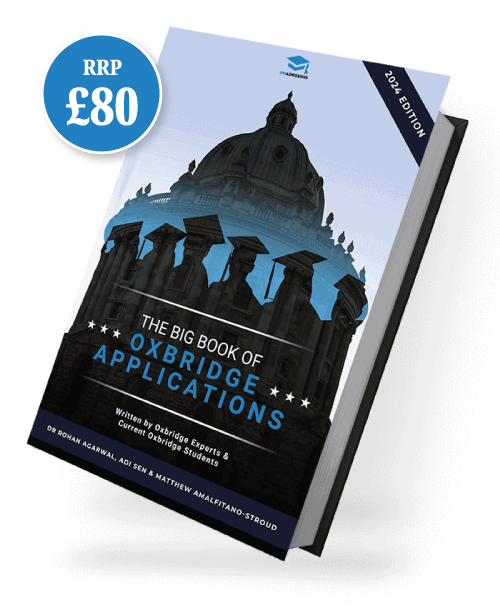
Read around you subject
One of the easiest ways to show passion and interest in your subject during Interviews is through wider reading. Reading academic material will form the basis of your degree, so it is beneficial to start finding useful sources of information. This will be especially useful for the interview as you may be asked to analyse a new written source on the spot.
Here are some approaches to building up your reading library and preparing for the unknown at an Oxford Interview.
- Look at the Oxford recommended reading lists published online, or which you have collected at an open day.
- Start with articles, and look at their bibliographies or perhaps literature reviews.
- Identify your topic of interest, and then follow blogs, medium profiles, social media, podcasts, videos and lectures etc.
- Ask your school teachers and current students.
On the Day of the interview
After one last week of interview preparation, the time will come for you to enter your first interview. Once you enter the room, your adrenaline will take over, and you will have little opportunity to use pre-learned lines, so don’t bother with that. This is where doing practice Interviews comes in handy because you genuinely do go on auto-pilot and you will forget the majority of what you will have discussed.
It’s important to not expect complete and utter perfection or even near-perfection. The interviewers are merely trying to see how you would get on if they taught you. Remember to breathe and be confident in your preparation.
Shake the habit of saying “I don’t know”
For some people, it can take a long time to get the hang of shaking this catchphrase. As cheesy as it sounds, interviewers love to see a “can-do attitude” in students: without this, an Oxford student will struggle to keep their morale up in the challenging terms of the degree course, so it’s essential to demonstrate this in the Interview.
Embrace guessing, most interviewers are just genuinely pleased that you’ve tried. You will be deliberately challenged in your Interview, but the most important thing to remember is not to panic. Even when you’re completely stumped, always guess if you are unsure.
Avoid putting too much pressure on yourself
This isn’t the same as not caring about the outcome, but by looking after yourself in the build-up to the Interview, you’ll likely perform better. Being flexible (and remaining calm) in the face of adversity is crucial; an important skill is to effectively deal with problems you’re inevitably going to encounter. Overall, these Interviews are important – but do be kind to yourself. Your performance will thank you for it.
Worried about the Oxford Interview questions? Our Tuition and Mock Interview Practice will guide you through the toughest questions.
Our Interview Programmes are designed to give you the highest chance of an Oxford offer at the Interview stage. Your expert Oxbridge tutor will work with you based on your specific subject and personal circumstances to craft a strong Interview strategy that truly gives you an advantage that can make the difference between an offer and rejection.
Discover our Interview Programmes by clicking the button below to enrol and triple your chances of success.

